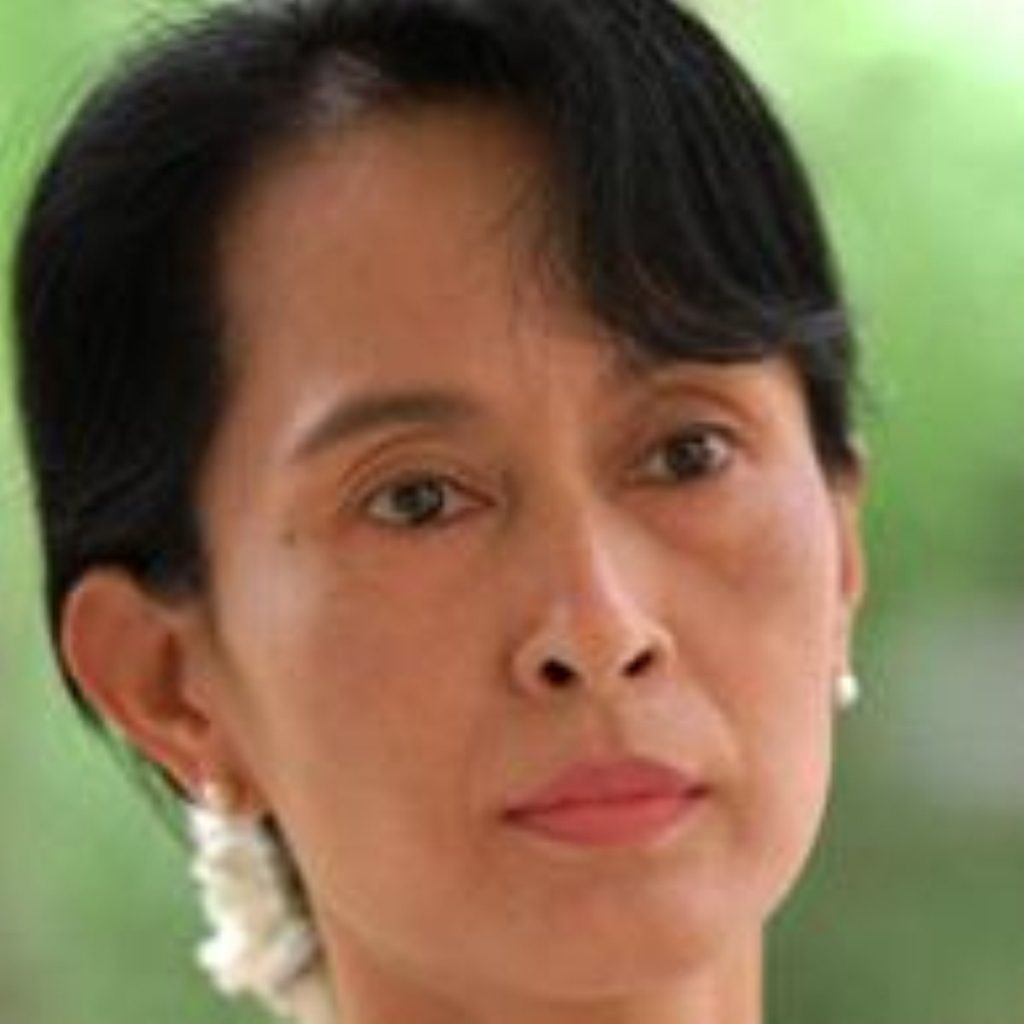Confusion threatens to undermine Aung San Suu Kyi visit
By Georgie Keate
There was confusion over Britain's attempt to reach out to the Burmese government today, even as Aung San Suu Kyi was being given the honour of addressing both houses of parliament.
Reports suggested the military government had confirmed an invitation for president Thein Sein to visit Britain, but the Foreign Office refused to confirm any invitation had been made.
The confusion comes a day after foreign secretary William Hague told the Commons that he would continue to cautiously offer support to the Burmese regime as long as it went ahead with embryonic democratic reforms.


"The progress we have seen in Burma is testament to the bravery and vision shown by Aung San Suu Kyi and president Thein Sein," he said today.
"They have embarked on a process of reform that could bring genuine democracy to Burma. The fact that Aung San Suu Kyi now feels able to leave Burma and return to the UK for the first time since 1988 is a signal to the world of how much the situation in Burma has changed."
Ms Suu Kyi became leader of the opposition in April 2012 after 20 years of periodic house arrest. David Cameron decided to visit Burma after her success to encourage the political reforms and has championed the loosening of sanctions against the country’s government.
In Wednesday’s prime minister’s questions, both William Hague and Harriet Harman praised Ms Suu Kyi.
The Nobel Laureate was educated at Oxford University where she met her future husband, Michael Aris, and brought up their two children during the 1980s.
She has left Burma for the first time in 24 years and yesterday, she visited her old home and received an honorary civil law doctorate from the University, giving a short speech outlining her happy memories of her college, St Hugh’s.
She has also visited the BBC World Service, debated at the London School of Economics and will address parliament later today. She will give her speech in Westminster Hall, a privilege that is usually only granted to heads of state.
Ms Suu Kyi returned to Burma in 1988 to look after her sick mother and was quickly caught up in the political upheaval against the dictator, General Ne Win.
As daughter of Burma’s independence hero, General Aung San, Ms Suu Kyi soon became the leader of the opposition organising peaceful rallies across the country,
These were brutally crushed by the army who then took over the government to set up a military junta. As soon as it was clear that Ms Suu Kyi’s party had won the election polls in 1990, the junta put her under house arrest off-and-on until 2010. During one of these confinements in 1999, her husband died of cancer.
However, in April 2012, she was allowed to stand in the elections and became the leader of the opposition. She will also visit Switzerland, France and Norway on her European tour.









